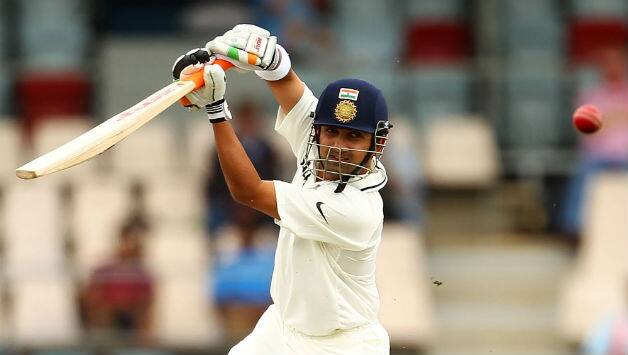
Cricket Country Staff
Editorial team of CricketCountry.
Written by Cricket Country Staff
Published: Dec 08, 2012, 12:50 PM (IST)
Edited: Dec 08, 2012, 12:50 PM (IST)


Gautam Gambhir was dismissed for 40 later in India’s second essay © Getty Images
Kolkata: Dec 8, 2012
South Africa Test captain Graeme Smith on Saturday urged India to accept the Umpires Decision Review System (DRS) technology, which the cricketing powerhouse has been opposing since a long time.
Smith wrote on social networking website Twitter, “So no DRS but DRS helps………time for India to join the rest of the cricketing world and back the system.”
The Indian opener Gautam Gambhir had a lucky escape on Saturday during the host’s second innings, when England’s Jonathan Trott took a low one-handed catch off Graeme Swann.
Trott claimed the catch and had already started celebrating Gambhir’s wicket, but the umpires decided to refer to the third umpire, who informed that the batsman had not hit the ball.
Former England cricketer-turned-commentator David Lloyd wrote, “Thought the ‘catch’ by Trott was correct decision . Batsman did not hit it.”
“Regulation is very clear re Trott’ catch 3rd ump can inform standing ump if batsman has not hit it,” he added.
Lloyd wrote, “Not India’s fault re Trott ‘catch’ . Test regulation states 3rd ump can tell standing , he did not hit it.” (sic)
According to the International Cricket Council’s (ICC) Standard Test Match Playing Conditions, “The third umpire has to determine whether the batsman has been caught. However, when reviewing the television replay(s), if it is clear to the third umpire that the batsman did not hit the ball, he shall indicate that the batsman is not out.”
This website uses cookies so that we can provide you with the best user experience possible. Cookie information is stored in your browser and performs functions such as recognising you when you return to our website and helping our team to understand which sections of the website you find most interesting and useful.
Strictly Necessary Cookie should be enabled at all times so that we can save your preferences for cookie settings.
If you disable this cookie, we will not be able to save your preferences. This means that every time you visit this website you will need to enable or disable cookies again.
